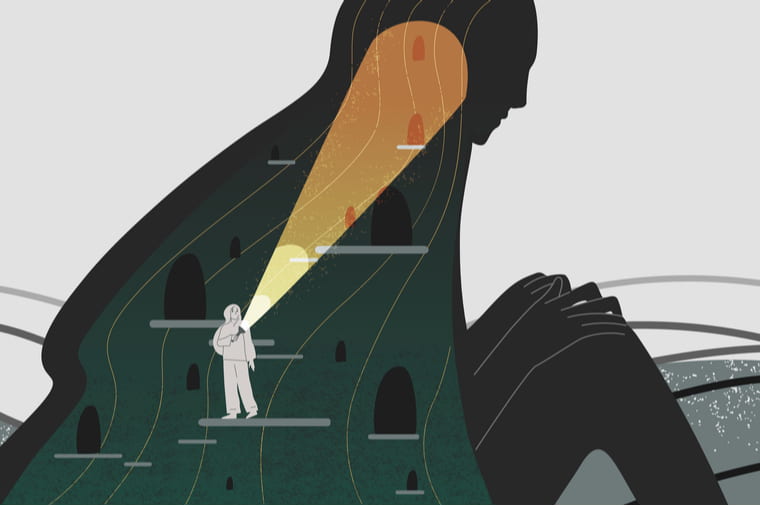Tim Bono is an assistant dean in Arts & Sciences and a lecturer in psychological and brain sciences at Washington University in St. Louis. Bono is also author of Happiness 101: Simple Secrets to Smart Living & Well-Being.

As precautions surrounding the coronavirus pandemic have shut down our favorite restaurants, social activities and beloved university traditions, the last few weeks have been fraught with many complex emotions. For those of you who are seniors, I know this is not what you wanted your final semester at WashU to look like. It’s not what I or any of your other professors want your experience to be, either.
In my positive psychology course, just before spring break, we left off in the middle of a lecture about self-esteem and resilience. We had been talking about how the true measure of psychological strength is found not in how we react when things are going well, but rather in how we respond to distress and adversity. One of the major themes of this unit is that although we may not be able to control a given situation and its outcome, we can control our attitude and how we deal with it.
Part of what makes this pandemic so harrowing is that no one can predict the exact trajectory of its course or magnitude of its ramifications. Still, the choices we make in our daily behaviors can go a long way in determining our overall well-being as this situation unfolds.
I’d like to share five strategies from positive psychology that we can employ to maximize our psychological health during this chaotic time — all within the parameters of social distancing, of course!
- 1) Continue to maintain connections with friends and loved ones. Relatedness is the single strongest predictor of our well-being and it’s times like these when we need connection more than ever. Do what you can to create a sense of community, even if that’s accomplished virtually through FaceTime, Skype or a good old-fashioned phone call. Or create an online watch party where everyone tunes in to the same movie or TV show simultaneously so that it still becomes a shared experience.
- 2) Prioritize sleep and exercise. It’s easy to look at the news and feel like things are spinning out of control. Therefore, it’s important to get a handle on things that are in our control. Some are attempting to accomplish this by clearing out Costco’s toilet paper supply. But prioritizing our health through consistent physical activity and healthy sleep patterns is a far better way to restore a sense of autonomy. Exercise releases the brain’s feel-good chemicals, and sleep strengthens neural circuits that promote well-being.
- 3) Let out your distress with pen and paper. It’s OK to feel sadness and anxiety. What matters most is how we respond to those emotions. When left to their own devices, feelings of distress can easily blow things out of proportion. The act of translating such feelings into language is one of the most powerful ways to put the brakes on negative thinking cycles, and it also allows us to gain insight, clarity and proper perspective.
- 4) Stay informed about what’s going on, but limit how much time you spend watching the news and looking at social media. And when you do, pay attention to the sources. Trust facts from credible authorities more than fear from dubious origins. It’s important to have a realistic understanding of the gravity of the situation to stay informed about the latest precautions being advised by medical experts. But don’t let those headlines consume you entirely. Every once in a while, switch over to music you enjoy or video clips from your favorite comedian.
- 5) Take note of the goodness of others whose prosocial behaviors are strengthening their communities and society at large. Express gratitude to those who are pitching in by running errands for elderly neighbors, providing meals for families who may otherwise have to go without or sharing their talents online to provide entertainment and inspire hope during these challenging times. And to the extent we can, let’s all consider opportunities we might have to follow suit.
In short, take care of yourself, take care of each other and let’s all do whatever we can to support one another in the coming weeks and months.
